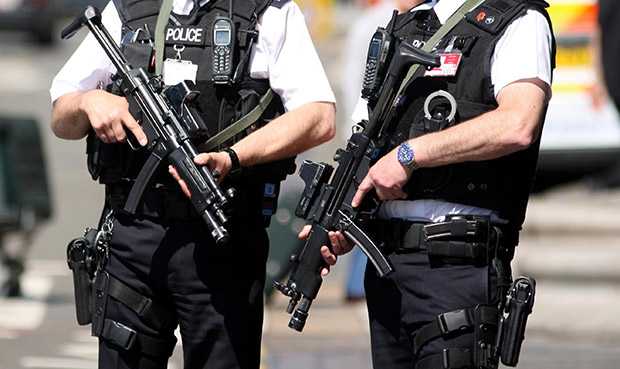Senior ministers have been warned that the sheer number of terrorist plots presently being planned in the UK means one slipping through the security service net is “almost inevitable”.
Although the police, working with the security services and the government’s communications intelligence body GCHQ, are now arresting a seemingly unprecedented number of suspected terrorists, the changing nature of the threat faced is making the job more difficult. In the Al-Qaeda era of Islamist terror, sophisticated bomb-plots involving relatively large numbers of operators made security relatively easier as communications could be intercepted.
The new style of terror attacks inspired by the Caliphate of the Islamic State and informed by the Woolwich barracks killing of Drummer Lee Rigby are significantly less sophisticated. Despite this, the security services claim to have foiled three attacks in the United Kingdom in the past two months.
A security source quoted by The Times newspaper spoke of this new generation of potential terrorists, saying after witnessing the Woolwich attack and others, radicalised Muslims have realised “they only need a kitchen knife and a mobile phone to carry out a high-impact attack”.
Anticipating attacks or other illegal acts is further complicated by the fact that many of the radicalised who wish to travel abroad to fight jihad, or to attack at home don’t have criminal records and are unknown to the security services.
Far from just keeping an eye on the “usual suspects”, an estimated 300 of the 600 British passport holders who have travelled to Syria and Iraq to fight for ISIS were not previously known to be threats.
Repeated calls to arms by ISIS, and the propagandistic value of the establishment of the first Caliphate since the collapse of the Ottoman Empire at the beginning of the last century have encouraged not only groups, but lone-wolf attackers to take up arms against their host nations in the West.
There has been debate over whether some attacks recently were motivated by a desire to carry out the will of the Caliphate, or were instead simple criminality. After the Woolwich murder, it was claimed the attack and the two recent converts who carried it out had “nothing to do with Islam”, a conceit which British author Tom Holland called “wishful thinking”.
Two divergent forms of Islam are clearly engaging in what appears to be the very least a war of words with each other. The Islamic State kills without compassion fellow Muslims who don’t tightly adhere to it’s own violent interpretation of the Koran, branding them ‘apostates’ who worship false idols and the dead.
Remarkably ISIS has allies in Europe, commonly identified as the Salafists who have been at the heart of recent violent riots in Germany, and who have had violent clashes with the Kurdish diaspora, replicating the violence of the Near East on European streets.
In return moderate Western Muslims denounce ISIS and reject it as having nothing to do with real Islam, a global religion of peace, following the Koran that commands “do not kill a soul”. This may be the beginning of what Holland identified when he said a “clearly Western form of Islam”, repulsed by violence, was destined to break away and establish itself as a separate entity.
Four suspected terrorists arrested last week, just hours before the start of national events to mark the centenary remembrance weekend in an emergency operation are being questioned by police, having been given an extra week to do so by a magistrate. It is now thought they intended to use the gathering of royals, statesmen and veterans to commit a terror atrocity with easily acquired bladed weapons.

COMMENTS
Please let us know if you're having issues with commenting.